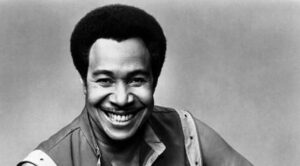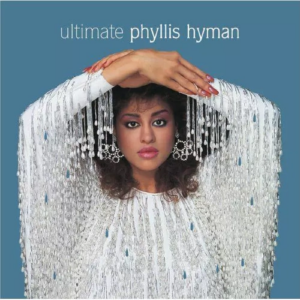When a critic reviews an established artist’s latter-career projects, he or she tries to enter the experience without prejudice. To let each new project speak with fresh breath, share new words and meanings without the coloration of what came before, good or bad to their subjective ear. Twelve years ago having found Les Princesses Nubiennes, the gold-selling U.S. debut project of French sister duo Les Nubians, one of those albums that casual music listeners use for “cool points” to convey some hidden depth about who they are as both a discriminating person and one of a certain class, I found myself viscerally loathing the pretentiousness surrounding the duo’s American introduction (They’re French! They’re Black! They have Dreads! They dress in Kente Cloth! Aren’t They So Deep?! Aren’t I Deep For Listening? Oh, Do You Not?). Le sigh.
As bad as the burning incense and spouting bad-slam-poetry-set made me itch over the ladies’ otherwise universally celebrated debut, upon listening to cuts like the blasphemously re-worked cover of Sade’s “Sweetest Taboo” and the unknowingly self-conscious “Sugar Cane,” I concluded that the likably jazzy single “Makeda” was not enough to rescue this otherwise uninteresting album from my “rarely heard from” pile. A subsequent Grammy nomination for the work might have placed me in the minority, but in short order the act’s American social value as a cultural accessory diminished when neo-soul fell out of fashion. And, by 2003, I was able to easily skip or skim their underperforming follow-ups, One Step Forward and Les Nubian Presents: ECHOES: Chapter One Nubian Voyager (2005), without fanfare. Despite continued international touring and acclaim, I generally thought the natives of Bourdeaux, France were toast on this side of Atlantic thereafter. I was wrong.
Creating work considerably more melodic and accessible than their early work, if occasionally cloying, the sisters return eight years later with Nü Revolution, a surprisingly enjoyable listening experience. The music more accurately reflects the coined “Afropean” music they were previously aiming for but trying much too hard to achieve, previously creating compositions that felt forced and over-intellectualized. With time, the sisters have developed more of an ease in their hybrid work of pop, jazz, hip hop and R&B, which in turn creates a flow to these songs that is akin to swimming in refreshingly warm waters. Now the Zap Mama comparisons are well-earned.
“Fraicheur Souhaitee” is such a song, with discrete Fender Rhodes, light strings, swelling horns, and a rhythm section that lends the composition both sophisticated textures and a cosmopolitan air—all without an ounce of pretense. The exotic “Vogue Navire” similarly brings an urban modernity to a tropical paradise and softly seductive vocals in ways that suggest Sade without ripping her off in any way. The more derivative yet pleasing “Veuilles Veiller Sur Vos Reves featuring John Banzai (J. Period Remix)“ plays like a blend of Spooks’ “Things I’ve Seen” and a French Erykah Badu and Guru’s “Plenty,” with its infectious R&B and hip hop hook, attitudinal electric bass, and dramatic key rifts. “Les Gens” finds the duo elegantly rapping, if one can get away with making such a statement, over a fuller, more rhythmic jazz production that makes the whole proceeding feel terribly mature for a genre so often relegated to the young. NYC hometown hero, Blitz The Ambassador, gives “Les Gens” a neo-classic Brooklyn hip hop edge. Throughout these less vocally demanding cuts, Les Nubians sinewy, French singing vocals are an asset.
Then, there are cuts that remind me why I struggle with the output of Héléne and Célia Faussart. They come on those tracks that aim to more prominently infuse African rhythms and spotlight the vocals and lyrics of the sisters to their disservice, as on the awkwardly mixed “Mbengue (A Letter From…).” There is the odd single, “Afrodance,” that exalts natural hair with a bebop jazz vocal approach and a double-dutch beat but whose cheap sounding production and saccharine hook only inspires *blank stares*. “Africa for the Future,” featuring Freshlyground, musically revives the Afrobeat spirit of Fela Kuti and does pleasingly paint a moody jazz groove portrait that inspires appreciative, even studied listening, but not actual movement. The song is hindered by another trite hook (“Africa/move your body/Africa/for the future”) that feels more theme song for a tourist bureau commercial than a celebration. An outsized talent in his own right, guest vocalist Eric Roberson does Les Nubians no favors by appearing in one of the more intricately involved, percussion-heavy tracks. The second his resonance rich baritone hits the pocket of these layers, one suddenly realizes how little the ladies sing with any weight and selfishly wishes Eric was featured on this astonishingly well-produced track all alone. Similarly, “Liberte,” a beautifully constructed acoustic guitar groove that subtly and movingly builds, vocally has the feel of the ladies needing just one more take on the leads to nail this gift of a song. Some sultry harmonies from the sisters cannot prevent one from recognizing the shakiness of their held notes, particularly when sung in English.
Speaking no French, I can only briefly ruminate about the duo’s lyrical abilities on most of this 70/30 French sung album. In their native tongue, with “Veuilles Veiller Sur Vos Reves” translating to the compelling title “Don’t Let Your Dreams Fall Asleep,” I will give them the benefit of utter brilliance. On the other hand, the English lyrics of songs like “Africa for the Future” and the title track are cliche but palatably honest in their sincere desires to encourage a love revolution. It helps the cut greatly that the ambitious music and production here gives the song a sweep and majesty the lyrics do not themselves afford this track. The children’s endearing sing-song speaking in the end redeems the host of Hallmarks that came before.
Amidst these light-hearted mid- to up-tempo grooves, there are many platitudes and revolutionary aspirations intended to inspire and motivate people to action or at least some serious reflection. And, yet the best music here only encourages luxuriating in an island breeze and maybe a little necking under the moonlight. Still, this time these more soothing musical approaches ensure that the album is not undone by the disconnect between the swooning sounds and the artists’ earnest hopes for their music to be more than the perfect accompaniment for a fine cocktail party or a little nookie. Maybe with enough repeated listening something more will sink into its listeners’ consciousness, but until then at least the only slightly pretentious Nü Revolution sounds good. Recommended.
By L. Michael Gipson










